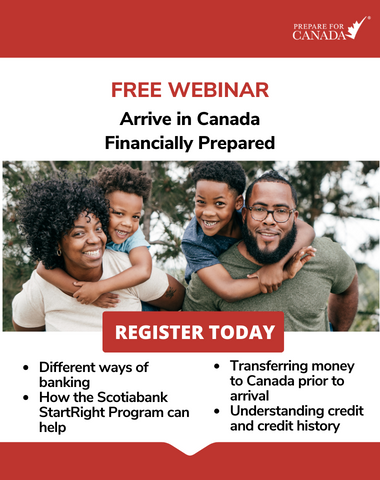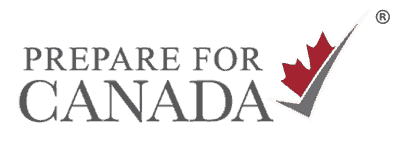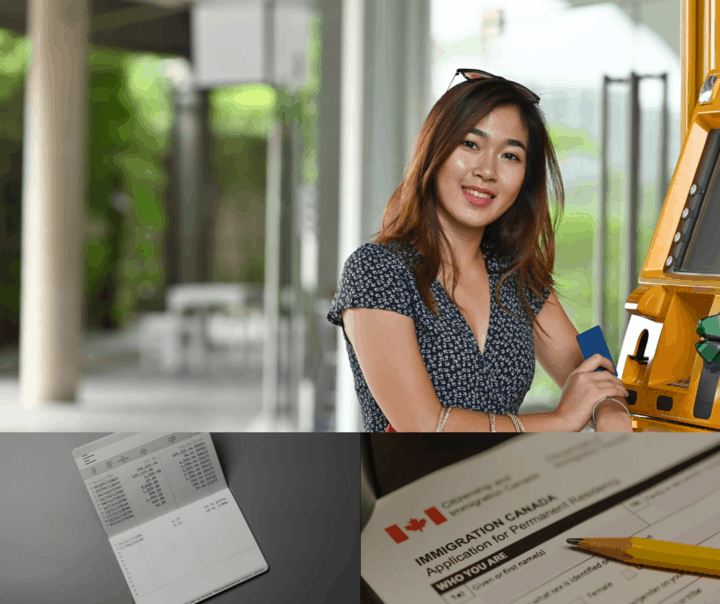While there are many things to do, here are the top 10 financial steps to take before you leave for Canada. And when you take these steps, it will prepare you for better financial footing when you arrive in Canada.
1. Open a bank account pre-arrival
Having a Canadian bank account before departure has many benefits. You can use the statement as proof of funds to the immigration officer at the Canadian airport, you don’t have to be carrying cash and worrying about safety and lastly, you have funds ready for you to use and don’t have to wait a week before a draft clears. Scotiabank is one of the few banks that allow you to open a bank account online while in your home country.
Advertisement:
2. Settle your affairs
Pay your debts. Review your insurance policies. Cancel your monthly services and obtain the necessary proof. Sell your properties or make arrangements on how to manage them from afar. In the stress of moving to another country, it is incredible how easily we can overlook certain details and leave behind loose ends. Never say “I’ll deal with it later,” because settling financial affairs from a distance often turns out costlier and more stressful.
3. Research living costs
Advertisement:
Before you leave, research basic costs in the city where you plan to settle. While you won’t be able to estimate your monthly expenses down to every detail, it’s helpful if you know the following costs:
- average monthly rent
- transit
- basic costs for utility bills
- medical insurance, and
- special services you may need.
While you can curb spending on things like food, entertainment, and clothes, you will find that other expenses are less flexible. You want to ensure you have enough money for the essential living costs. Find out more about the cost of living in Canada.

4. Gather all your important documents
Newcomers to Canada may be eligible for certain tax credits and other benefits. You can file an income tax return even before you have an income history in Canada.
Make sure you and your spouse document your earnings history for the two years before you immigrated to Canada. Also, gather the originals of all the documents that may help you to show proof of your past insurance and credit history.
5. Research what goods you can bring into Canada
On the Canada Border Services Agency (CBSA) website, you can research the permitted and forbidden goods you can bring through customs. You don’t want to find yourself in the unpleasant situation of paying fines or extra taxes or having to dispose of certain goods.
Advertisement:
6. List your necessities
Make a list of everything you need to buy to set up a home, down to forks and spoons. The things we take for granted at home cost money, every single one of them. The list may be frighteningly long, but you should always have a realistic idea of your needs. This way, you will avoid getting carried away when you shop for your new life in Canada.
7. Increase your savings
The Canadian government requires immigrants to show they have the minimum financial funds to support themselves and their dependents for six months after arrival. However, it’s better if you have more than the minimum financial funds. The bigger your city of destination, the sooner your savings will shrink.
If you can take on extra work or cut down on unnecessary spending, do it. These are critical financial steps before you leave for Canada that will help you to minimize financial stress.
8. Take advantage of cheaper services
Make your life easier when coming here by taking advantage of any useful service that is cheaper in your home country. For example, in Canada, like in most advanced countries, dental services are notoriously expensive, and so are many other medical or cosmetic procedures. Repairs and restorations of items such as artwork or other valuable possessions will, most likely, be more expensive here as well.
9. Find temporary accommodation
If you don’t have any friends or family willing to offer temporary accommodation, research the cost of short-term rentals well in advance, and make reservations. Pick a cost-effective and convenient location that will allow you to move around easily while you search for a permanent home.
Recommended Posts:
Accommodation in Canada & Options for Newcomers
What can I do to get ready for Canada?
Opening a Bank Account in Canada
Goods to Follow|Bringing Your Goods to Canada
Banking and Finance in Canada: Your First Steps
First Things to Do After Landing in Canada
10. Obtain the appropriate financial tools
Know in advance how you will be handling your money. Will you be carrying cash? Will you be relying mostly on plastic? Many hotels here do not accept cash and require a credit card, and rental buildings require payment by debit card or cheque.
It can be stressful carrying around too much cash, but you can easily lose track of spending solely relying on plastic. So make a point of checking your balance.
Moving to a new country will require a solid financial plan. And when you take these financial steps before you leave for Canada you’ll be better able to manage your finances.


